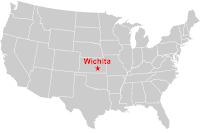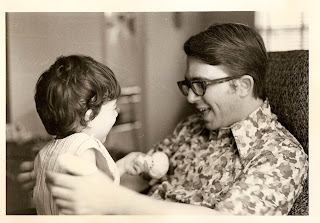Rav Hirsch brings down the idea that the root of aveilus is the Hebrew word aval, which means “but”. This is because while one is mourning someone, there’s always this feeling of “…but, I should have spent more time with the departed” or “…I’m doing ok, but, I still miss the person”. There’s always a “but”.
My father a”h has been niftar for just over two months and I’m hoping that this post will be somewhat cathartic for me. It’s been hard to actually sit down and write lately. This is mostly due to the fact that my father, while in the hospital, mentioned to me that he has always enjoyed reading my blog (I had only become aware that he even knew about it at the end of the summer). While I’m glad that he was able to let me know this, thinking about a post or even writing something reminds me of the fact that he’s not around. It’s the same way with Sugar-Free Grape Kool Aid. My dad, it seems loved the stuff. It was about the only thing I drank, besides coffee, when I was in Wichita. I’ve thought about buying it for home, but I can’t bring myself to do it. Hazelnut coffee is also one of those things my dad loved. He would mix Columbian ground coffee with hazelnut flavored coffee and that was his brew. At work we have hazelnut flavored creamer. I try not to even look at it.
Making sure that I don’t miss a Kaddish is constantly on my mind. There’s a very strong sense of being alone, since I’m the only one (in Chicago) saying Kaddish for my father, but there’s also sort of an unspoken connection that I have to others who are also saying Kaddish in any given minyan.
The “no music” thing has begun to drive me batty. I constantly have tons of music-mixes going through my head. Mixes that, in a way, reflect different aspects of who I am. I’ve got Carlebach songs that flow into a Husker Du/Bob Mould track that will then ease into Diaspora Yeshiva Band song which will blend into early REM tracks that slide into a Rabbis Sons song and finally ending (most recently) with something from the soundtrack to Blade Runner. It’s the ultimate mega-mix in an odd way. I catch myself humming niggunim around my office and in the car. I was never into sports, so I’m stuck listening to news radio (which I don’t mind) in the car. But (there’s that but again), there’s really only so many time I can hear “traffic and weather together on the 8s”.
I’ve felt pretty detached from things at home. Even though my wife is great about it, it bothers me. On the flip side, though, I’m trying to become much more “communal” in terms of my thinking about what I can offer my own community, as well as getting more involved in things.
My drive home from work is tough. I’m lucky that I have a commute that is under 20 minutes, but I use to call my dad (almost daily) on the way home from work. I’m fortunate that I can call my brother and shmooze with him, but it’s not the same.
Two friends (and bloggers) sent me a copy of Out of the Whirlwind by Rav Soloveitchik zt”ll. I’ve found the sefer to be very insightful. I’ll end with a quote from the last chapter, titled “A Theory of Emotions”:
Avelut denotes the critical stage of mourning, the grief awareness, and at this level, we will notice at once that avelut contains its own proper negation-solace and hope. Avelut in Halakhah is interwoven with nehamah, consolation. They are inseparable. The latter is not a frame of mind which displaces grief; there is rather an inter-penetration of grief and solace, of forelornness and hope, of mourning and faith. Immediately upon closing the grave, the line is formed and comfort is offerend to the mourners. What is the Kaddish pronounced at the grave if not an ostentatious negation of despair?
I’m thankful that I live in a community with so many friends who helped me during shiva and continue to do so. I attempt to remember that I’m loved by my creator and that this current situation is a really springboard for growth on many different levels. But…







